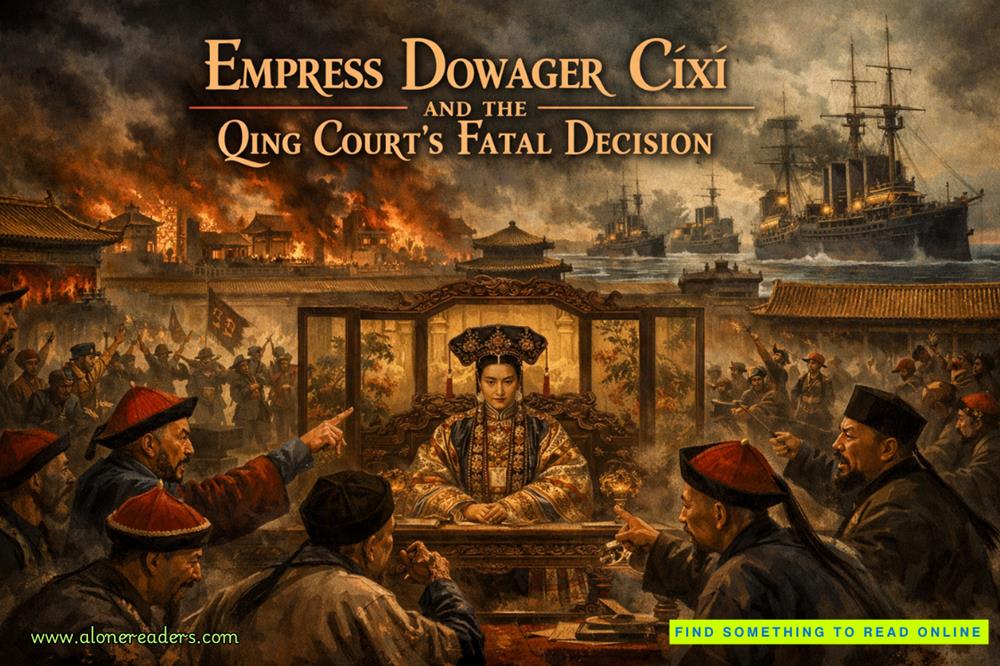“He said, ‘He’s not—’ and then he was gone.” Her voice cracked. “You didn’t see his face. He looked afraid.”
It wasn’t only what her father said. It was what he refused to see. His eyes never met hers. As if looking too long might reveal something he didn’t want to acknowledge. About Hamish. About her. About himself.
“A man died, Mary-Ann,” her father said, more firmly now. “Let that be enough. It’s done.”
She wanted to scream at him, not in grief, but in frustration. She wanted to shake him, to demand he take off his blinders and see what she had seen. But she said nothing. What was the use? Her father had built his world on the certainties of shipping routes, profit margins, and well-paid loyalties. Anything that threatened that order, he dismissed as an inconvenience or imagination. And she was his daughter, sharp, yes, but still a woman. Still, someone to be comforted and guided, not believed.
When they reached the house, the footman helped her down, and she entered without waiting for anyone. Her shoes clicked briskly along the marble foyer until she reached the study. She closed the door behind her.
There, in the hush of oil-polished wood and shelves of account books, she let the tension melt just enough to lower herself into the chair. She laid the ledger on the desk in front of her. For a moment, she didn’t move. The silence in the study wasn’t peaceful. It felt expectant, coiled like something waitingto spring. She exhaled, trying to gather her thoughts, but they skittered like loose pages in a breeze.
The stillness felt too thick, too intentional, as if the room itself were waiting for her to make a mistake. She ran her fingers along the edge of the ledger. Her hand trembled, not from grief but from the sharp edge of suspicion cutting deeper than she was prepared to admit. She stared at it. The cracked leather cover, the scent of ink and starch and salt from the docks. It all felt suddenly sinister. What had once been numbers and routine now looked like a cipher. A mask. A trail she hadn’t known she was following.
A soft knock came at the door. Before she could answer, it opened.
“Mary-Ann?” Wilkinson.
He entered with careful steps, like someone entering a chapel. “I came as soon as I heard. My God, are you all right?”
She nodded. “I’m fine.”
“That must’ve been dreadful,” he said, kneeling beside her chair. He reached for her hand.
She didn’t pull away. But she didn’t return the pressure, either. Her hand rested in his like something forgotten.
“You don’t have to talk about it,” he said gently. “Just say the word, and I’ll see to it that your father doesn’t trouble you with these ledgers again.”
Her gaze sharpened. “I’m not fragile, Rodney.”
He blinked. “Of course not. Forgive me. I only meant that no one would find fault if you needed to rest.”
Mary-Ann said nothing. But the quiet between them thickened. He hadn’t asked what she’d seen, hadn’t even wondered aloud if the accident had truly been one. It was all smoothed-over concern, carefully chosen words. And now, he wanted to strip away the one thing that gave her a sense of control. The ledgers. Her work. Her instincts.
He stood slowly. Mary-Ann watched him without rising, her eyes sharp despite the ache behind them. He didn’t glance at the ledger again, nor did he ask what she was working on. Only smoothed his sleeve and gave her that same distant, polished smile.
“I’ll give you some time. We’ll speak later.”
She nodded again, but only after he’d turned away. When she heard his footsteps fade down the hall, she let her shoulders sag. His presence lingered like perfume that had turned sour. He had always been like this, hadn’t he? Always saying the right thing and offering sympathy in perfectly measured doses. But there was never a question, never a curiosity that reached beyond the surface. She hadn’t seen it clearly before. But now, after today, it felt glaring. She hadn’t imagined that chill beneath the warmth. She simply hadn’t wanted to name it. So careful. So controlled. So… empty. Quinton wouldn’t have offered comfort before understanding the wound. He would have asked. Pressed. Refused to look away.
A short time later, another knock sounded. This time, it was Hollis with two notes on a silver tray.
The first was penned in Mrs. Bainbridge’s careful script:
My dear, I’ve just heard. If you’d like company, I’d be honored to sit with you for a while. If not, know that I am near. You need not carry this alone.
With affection, Honoria Bainbridge
The second was in a more masculine hand, the paper crisp and the dark ink, a note from Barrington’s household.
Miss Seaton, Lord Rockingham, asked me to convey his concern. Should you require anything, please know you have only to ask.
Respectfully, Preston Kenworth
Her throat tightened. Neither note asked her to be anything but herself. Not useful. Not composed. Just… cared for. It steadied her more than tea or silence ever had. She stared at the notes for a long time, then pressed them gently between the pages of the ledger before closing it.
She hadn’t imagined it. Quinton would ask. And when she was ready, she would answer.
She opened her folio and leafed through the ledger pages again, this time more slowly. She examined the notes in the margins, tally marks, and names.















